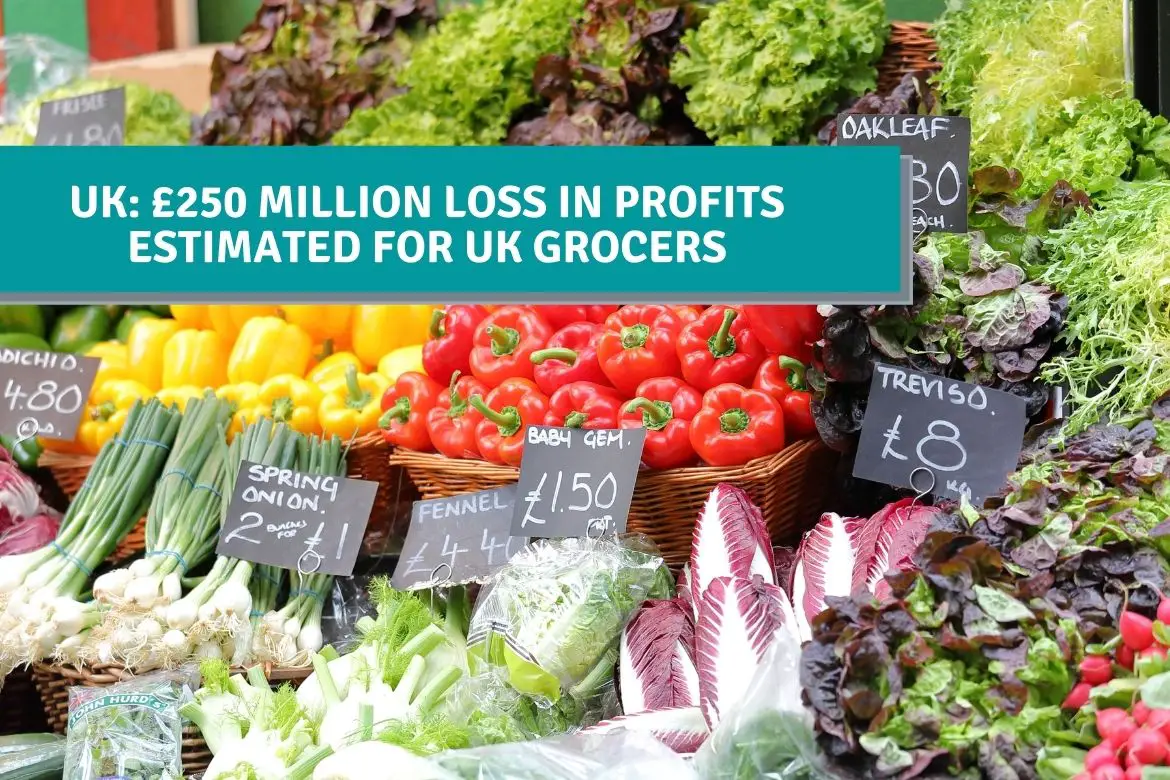According to new research by Euler Hermes, the grocery sector in the UK could see its profits fall by almost £250 million as a result of the increase in online food shopping because of the pandemic.
Trade credit insurance estimates that retailers risk losing £246 million in profit each time e-commerce increases its share of the UK grocery market by just 1 percentage point.
UK supermarkets generate 12 per cent of their revenue from online sales, making them the most exposed operators within the European Union. French online sales account for 8 percent of the total market share, while Italy, Spain, and Germany each have less than 4 percent.
In 2020, the size of European food sales grew by more than 5 per cent – twice the average annual rate since 2010 – and an additional 2.4 per cent from January to June despite more relaxed Covid restrictions. Euler Hermes’ estimates consider UK retailers with EBITDA margins of 3.7 per cent (European average) and -10 per cent profit margins for online sales. Assuming profit margins of -5% and 0%, the subsector’s profits would still fall by £156million and £66million, respectively.
It is believed that because of this issue, retailers might start investing more on their online infrastructure in an attempt to minimize the losses.
New research from Euler Hermes titled European food retailers: The bitter digital aftertaste of the Covid-19 legacy highlights these findings. The report illustrates how every percentage point of grocery sales moving online threatens to undermine sales of €13.6 billion and profits of €1.9 billion (4 per cent of total sales).
According to Aurelien Duthoit, senior sector advisor for macroeconomic research at Euler Hermes: “The UK’s already well-developed appetite for online grocery shopping has left it overexposed by the surge in household demand during the pandemic. As we head into the traditionally busy ‘golden quarter’ amid disruption and increased costs across the supply chain, it’s imperative that retailers are able to meet any further uptick in online demand efficiently.
“While grocers are looking to attract customers back to their stores following successive lockdowns, they should be looking to rotate their investment to adjust for a sustained increase in e-commerce. Investment in the past 12 months has rightly focused on expanding online capacity but more sustainable models will need to prioritise profitability – including a redesign of current logistics infrastructure and extensive uptake of new warehouse automation technologies.
“We’d also expect to see fledgling partnerships between traditional retail brands and food technology businesses continue to blossom – be that delivery specialists, dark store operators or logistics companies offering software and warehouse services.”


